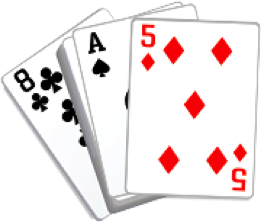Introduction to Probability
Introduction to Probability
In this activity, you will have the opportunity to explore events that occur together and determine if they are independent events or dependent events.
Before we can calculate the probability of an event occurring, we need to determine if that event is independent or dependent.
Events are considered independent when the occurrence of one event has no effect on the occurrence of another.
Events are considered dependent when the occurrence of one of the events affects the occurrence of the other.
Use the interactive below to determine if each problem describes independent events or dependent events.
Card Sort ActivityThe card activity allows you to sort independent and dependent events.
Consider the following reflection questions:
- What are some of the ways that you are able to determine if events are dependent?
- How do situations with replacement differ from those without replacement?
- What are some additional examples of situations where you need specification on whether or not there is replacement to determine dependence or independence of events?
The next activity will provide an opportunity to explore how to determine the probability of independent events.
Probability of Independent Events
Probability of Independent Events
All of the situations you identified in the last section as either independent or dependent can be described as compound events because two or more events occur. How do we find the probability of these events? Let’s take a look at an example.

Here is an example for you to try:
Find the probability of drawing a face card (K, Q, or J) and then a 7 from a standard 52 card deck with replacement.
Consider the following reflection question:
- How do you know this situation is independent?
The next activity will provide an opportunity to explore how to determine the probability of dependent events.
Probability of Dependent Events
Probability of Dependent Events
In the last section, you saw an example of finding a probability for independent events, but what about when an event depends on the occurrence of another event?
Let's take a look at a similar example in the video below.

Now here is an example for you to try:
Find the probability of not drawing a face card (K, Q, or J) and then a 4 from a standard 52 card deck without replacement.
Consider the following reflection question:
- How do you know this situation is dependent?
The examples provided are just an introduction to the world of probability.